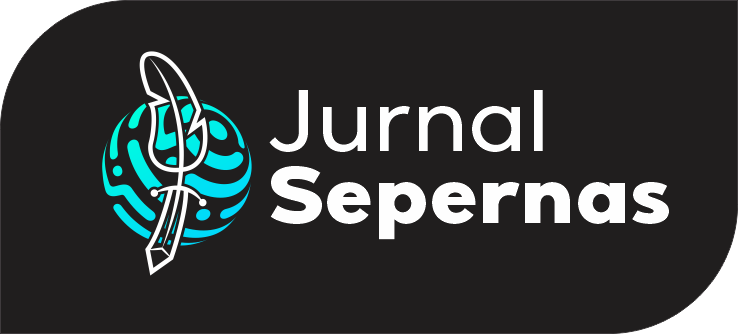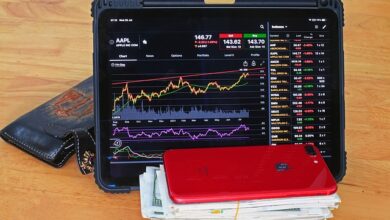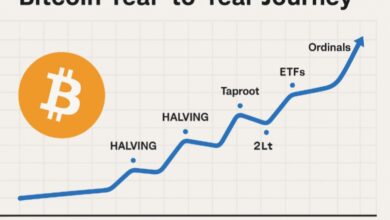Best Crypto Wallet Platforms in 2025: Full Review and Comparison

Introduction
As the cryptocurrency market continues to mature, securing your digital assets has become more critical than ever. Whether you’re trading Bitcoin, staking Ethereum, or exploring DeFi, a reliable crypto wallet is your foundation for safety, flexibility, and control.
With so many wallet options — hardware, software, mobile, and web — choosing the right one can be confusing. In this article, we’ll break down the best crypto wallet platforms in 2025, compare their features, and help you decide which wallet fits your investment style and security needs.
1. What Is a Crypto Wallet?
A crypto wallet is a tool that allows users to store, send, and receive cryptocurrencies securely. Unlike a traditional wallet that holds physical cash, a crypto wallet stores private keys — the cryptographic credentials that give you access to your blockchain assets.
There are two main types of wallets:
- Custodial wallets – Managed by a third party (like an exchange). Easier for beginners but you don’t control the private keys.
- Non-custodial wallets – You fully control your private keys. Higher responsibility, but also higher security.
Within these categories, wallets can be hardware (cold storage) or software (hot wallets). Let’s explore the top choices available in 2025.
2. How to Choose the Best Crypto Wallet
Before diving into the list, consider these key factors when selecting your wallet:
- Security: Multi-signature support, encryption, 2FA, and offline storage are must-haves.
- Ease of Use: A wallet should be intuitive and accessible, especially for beginners.
- Supported Coins: Ensure it supports all the assets you plan to hold.
- Backup and Recovery: A good wallet should offer seed phrase recovery options.
- Integration: DeFi, staking, and exchange integration add extra value.
- Regulation & Trust: Established brands or open-source wallets with transparency are preferred.
3. The Best Crypto Wallet Platforms in 2025
Here are the top 8 wallets ranked by security, usability, and performance.
1. Ledger Nano X (Hardware Wallet)
Overview:
The Ledger Nano X remains one of the most trusted hardware wallets in the world. Designed for both beginners and professionals, it offers enterprise-level security for storing crypto offline.
Key Features:
- Supports 5,000+ coins (BTC, ETH, ADA, SOL, etc.)
- Bluetooth and USB connectivity
- Secure Element chip certified (CC EAL5+)
- Integration with Ledger Live app for portfolio tracking
Pros:
✔ Extremely secure (offline cold storage)
✔ Compatible with DeFi and NFTs via Ledger Live
✔ Long-lasting battery and mobile-friendly
Cons:
❌ Costs around $149
❌ Requires physical device for access
Best for: Long-term investors who prioritize maximum security and cold storage.
2. Trezor Model T (Hardware Wallet)
Overview:
The Trezor Model T is Ledger’s main competitor and one of the pioneers in crypto cold storage. It’s open-source and integrates seamlessly with DeFi and Web3 applications.
Key Features:
- Touchscreen interface
- Supports 1,200+ cryptocurrencies
- Open-source firmware for transparency
- Backup recovery with Shamir’s Secret Sharing
Pros:
✔ Advanced security with open-source transparency
✔ Touchscreen for easy navigation
✔ Compatible with popular wallets (Exodus, MetaMask)
Cons:
❌ Slightly expensive ($179)
❌ No Bluetooth connectivity
Best for: Tech-savvy investors who value open-source security and transparency.
3. MetaMask (Software Wallet)
Overview:
MetaMask is the go-to wallet for DeFi and Web3 users. As a browser extension and mobile app, it allows seamless interaction with Ethereum, Polygon, BNB Chain, and thousands of dApps.
Key Features:
- Non-custodial (you own your keys)
- Supports ETH, ERC-20 tokens, and multiple EVM chains
- Connects to dApps like Uniswap, Aave, and OpenSea
- Integrated swap and bridge features
Pros:
✔ Free and easy to set up
✔ Ideal for DeFi users and NFT traders
✔ Multi-chain support
Cons:
❌ Vulnerable to phishing attacks if used carelessly
❌ Limited customer support
Best for: Web3 users who want direct DeFi and NFT access with control over their keys.
4. Trust Wallet
Overview:
Acquired by Binance, Trust Wallet has become one of the most popular mobile crypto wallets globally. It’s non-custodial and supports multiple blockchains, making it perfect for users managing diverse portfolios.
Key Features:
- Supports 10M+ assets and 100+ blockchains
- Built-in DEX and staking functionality
- Fingerprint and Face ID protection
- Integrated browser for dApps
Pros:
✔ Beginner-friendly
✔ Excellent token coverage
✔ Built-in staking for passive income
Cons:
❌ Mobile-only (limited desktop support)
❌ Owned by Binance (semi-centralized concern)
Best for: Mobile users who want a simple, all-in-one wallet for storing, staking, and trading.
5. Coinbase Wallet
Overview:
Coinbase Wallet is a non-custodial product from the trusted U.S. exchange Coinbase. It lets users access DeFi, NFTs, and self-custody crypto, all under a regulated and user-friendly ecosystem.
Key Features:
- Full control of private keys
- Connects to DeFi protocols like Compound and Uniswap
- NFT storage and marketplace integration
- Easy transfer between Coinbase exchange and wallet
Pros:
✔ Regulated and backed by a major U.S. exchange
✔ Supports thousands of tokens and NFTs
✔ Intuitive interface for beginners
Cons:
❌ Some advanced DeFi integrations missing
❌ Transaction fees can be higher than average
Best for: U.S. users who want compliance, simplicity, and DeFi access without leaving Coinbase’s ecosystem.
6. Exodus Wallet
Overview:
Exodus is a beautiful and intuitive software wallet that combines design with functionality. Available on desktop and mobile, it supports over 250 cryptocurrencies and integrates with the Trezor hardware wallet for added security.
Key Features:
- User-friendly interface
- Built-in crypto exchange
- 24/7 customer support
- Staking options for multiple coins
Pros:
✔ Visually stunning and easy to use
✔ Integrated exchange for convenience
✔ Great customer support
Cons:
❌ Closed-source software (less transparent)
❌ Higher exchange fees
Best for: Beginners who want a sleek, all-in-one crypto wallet for everyday use.
7. ZenGo Wallet
Overview:
ZenGo takes a modern, password-free approach to crypto storage. It uses facial recognition and multiparty computation (MPC) instead of traditional seed phrases, making it highly secure and easy for beginners.
Key Features:
- MPC cryptography (no seed phrase to lose)
- 24/7 live customer support
- Supports BTC, ETH, DOGE, and 70+ coins
- Staking and savings features
Pros:
✔ No private keys to manage manually
✔ High security with biometric authentication
✔ Excellent customer experience
Cons:
❌ Limited DeFi compatibility
❌ Smaller range of supported assets
Best for: New crypto users who want maximum security without technical setup.
8. Phantom Wallet (for Solana Ecosystem)
Overview:
Phantom is the most popular wallet for the Solana blockchain, supporting NFTs, staking, and fast transactions. In 2025, Phantom has also expanded to support Ethereum and Polygon networks.
Key Features:
- Multi-chain wallet (SOL, ETH, MATIC)
- In-wallet NFT management
- Built-in staking and swap
- Browser extension and mobile app
Pros:
✔ Lightweight and easy to use
✔ Excellent NFT management
✔ Growing multi-chain support
Cons:
❌ Focused mainly on Solana
❌ Not ideal for Bitcoin users
Best for: Solana and NFT enthusiasts looking for speed and simplicity.
4. Comparison Table: Best Crypto Wallets (2025)
| Wallet | Type | Supported Coins | Custody | Staking | Price | Ideal For |
|---|---|---|---|---|---|---|
| Ledger Nano X | Hardware | 5,000+ | Non-custodial | ✅ | $149 | Long-term holders |
| Trezor Model T | Hardware | 1,200+ | Non-custodial | ✅ | $179 | Tech-savvy investors |
| MetaMask | Software | ETH, ERC-20 | Non-custodial | ⚪ | Free | DeFi users |
| Trust Wallet | Mobile | 10M+ | Non-custodial | ✅ | Free | Mobile traders |
| Coinbase Wallet | Software | 10,000+ | Non-custodial | ✅ | Free | U.S. investors |
| Exodus | Desktop/Mobile | 250+ | Non-custodial | ✅ | Free | Beginners |
| ZenGo | Mobile | 70+ | Custodial (MPC) | ✅ | Free | Casual users |
| Phantom | Web/Mobile | SOL, ETH, MATIC | Non-custodial | ✅ | Free | Solana/NFT users |
5. Security Considerations
When it comes to storing crypto, security is everything.
- Hardware wallets (Ledger, Trezor) are safest for large amounts — they keep your private keys offline.
- Software wallets (MetaMask, Trust, Exodus) are ideal for daily transactions but must be used carefully.
- Always back up your recovery phrase and never share it.
- Beware of phishing websites and fake browser extensions.
- Use 2FA or biometric authentication whenever possible.
Pro tip: Use a combination — a hardware wallet for savings and a software wallet for daily transactions.
6. Integration with DeFi and NFTs
As decentralized finance and NFTs dominate the crypto ecosystem, wallet compatibility has become crucial.
- MetaMask and Coinbase Wallet are the most DeFi-friendly, supporting thousands of dApps.
- Trust Wallet and Phantom excel in NFT management.
- Ledger and Trezor integrate with Web3 through connection bridges (e.g., Ledger Live, MetaMask).
This multi-chain and DeFi compatibility makes it easier to earn, trade, and participate in new opportunities.
7. U.S. Regulation and Tax Implications
For U.S. users, it’s important to note that wallet usage is legal and encouraged for self-custody. However:
- Transactions are taxable events (capital gains/losses).
- Always record wallet transactions and transfers for IRS reporting.
- Using regulated platforms (like Coinbase Wallet) simplifies compliance.
8. The Future of Crypto Wallets (2025–2030)
The next generation of wallets is evolving fast. Here’s what to expect:
- Multi-chain interoperability: Seamless management across Bitcoin, Ethereum, Solana, and Layer-2s.
- Smart account wallets (Account Abstraction): Enhanced user experience with no gas or seed phrases.
- AI-powered wallet assistants: Real-time security scanning and tax reporting.
- Integrated fiat on-ramps: Buy and sell crypto directly in your wallet.
- Regulated DeFi integration: U.S.-compliant decentralized apps will become more common.
These innovations will make wallets smarter, safer, and easier for mainstream adoption.
9. Which Crypto Wallet Should You Choose?
Here’s a quick guide:
- 🛡️ Maximum Security: Ledger Nano X or Trezor Model T
- 💼 Everyday Use: Trust Wallet or Exodus
- 🌐 DeFi & Web3 Access: MetaMask or Coinbase Wallet
- 📱 Mobile Simplicity: ZenGo
- 🎨 NFT Enthusiasts: Phantom
If you hold large amounts of crypto, a hardware wallet is essential. For smaller holdings or daily use, a software or mobile wallet offers more convenience.
Conclusion
Your crypto wallet is the core of your financial independence in the digital economy. In 2025, with the rise of DeFi, NFTs, and multi-chain ecosystems, choosing the right wallet is more important than ever.
For U.S. investors, platforms like Coinbase Wallet, Kraken Wallet (via staking), and MetaMask combine usability with compliance. For global users, Trust Wallet and Ledger Nano X remain unbeatable choices for flexibility and long-term storage.
No matter which wallet you pick, remember:
Not your keys, not your coins.
Owning your private keys means true ownership — and in the world of crypto, that’s the ultimate security.















